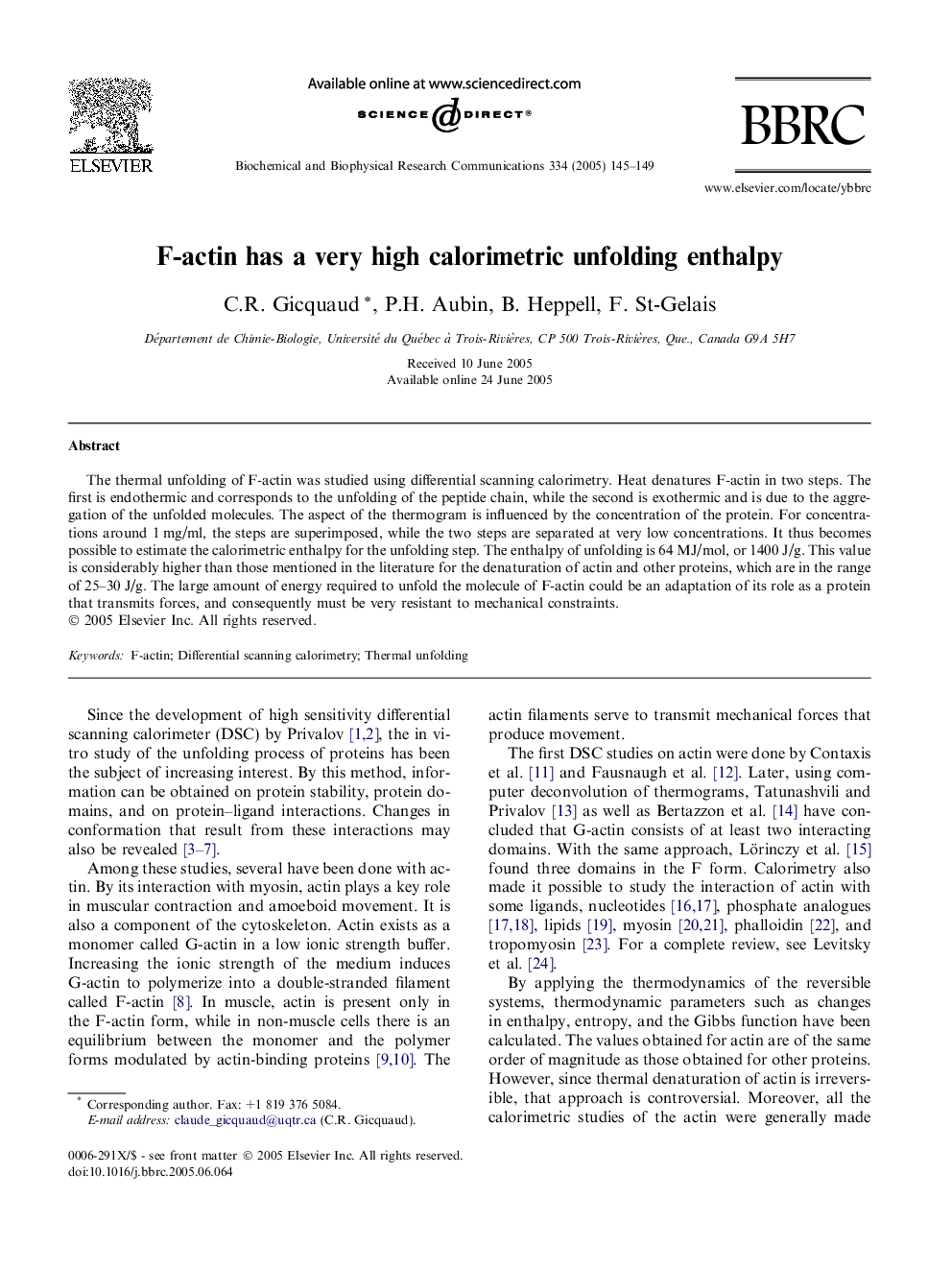| Article ID | Journal | Published Year | Pages | File Type |
|---|---|---|---|---|
| 10769469 | Biochemical and Biophysical Research Communications | 2005 | 5 Pages |
Abstract
The thermal unfolding of F-actin was studied using differential scanning calorimetry. Heat denatures F-actin in two steps. The first is endothermic and corresponds to the unfolding of the peptide chain, while the second is exothermic and is due to the aggregation of the unfolded molecules. The aspect of the thermogram is influenced by the concentration of the protein. For concentrations around 1Â mg/ml, the steps are superimposed, while the two steps are separated at very low concentrations. It thus becomes possible to estimate the calorimetric enthalpy for the unfolding step. The enthalpy of unfolding is 64Â MJ/mol, or 1400Â J/g. This value is considerably higher than those mentioned in the literature for the denaturation of actin and other proteins, which are in the range of 25-30Â J/g. The large amount of energy required to unfold the molecule of F-actin could be an adaptation of its role as a protein that transmits forces, and consequently must be very resistant to mechanical constraints.
Related Topics
Life Sciences
Biochemistry, Genetics and Molecular Biology
Biochemistry
Authors
C.R. Gicquaud, P.H. Aubin, B. Heppell, F. St-Gelais,
